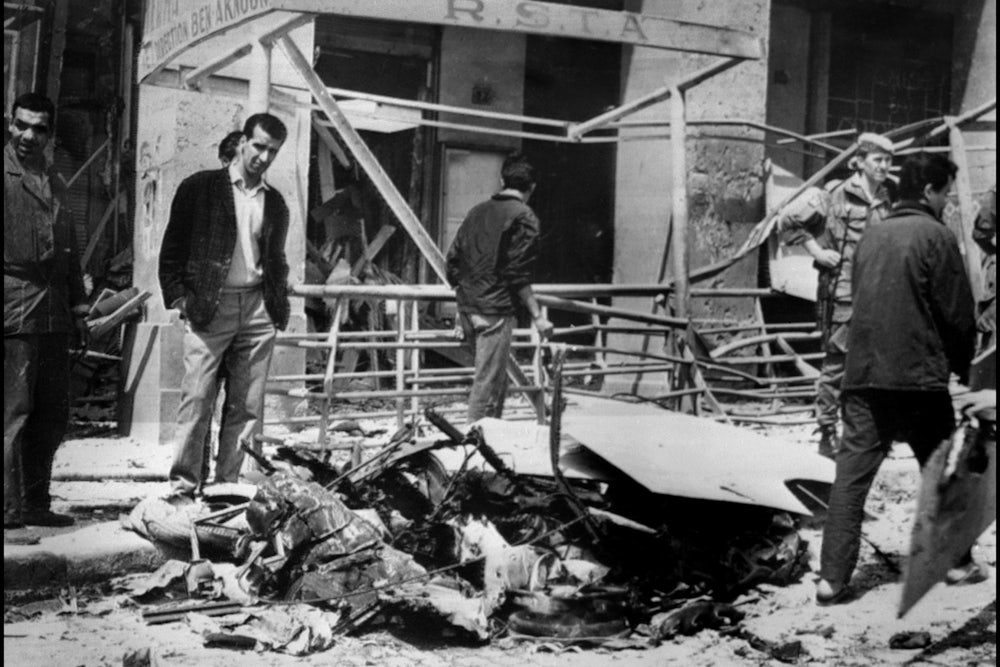The French president has come closer than any of his predecessors in acknowledging the scale of violence committed by French forces in the Algerian war of independence from 1954-1962, one of the most ferocious anti-colonial struggles of the last century. Historians have long contended the war consumed hundreds of thousands of lives (the most conservative estimates are 240,000), with French and Algerian independence forces both torturing many thousands.
Macron specifically brought up the case of Maurice Audin, a French mathematician and activist who was tortured and killed in 1957 for supporting Algerian independence. The French president described Audin’s murder as not just an individual event but the product of a wider system: “It was nonetheless made possible by a legally instituted system: the ‘arrest-detention’ system, set up under the special powers that [had] been entrusted by law to the armed forces at that time.” Macron asked for forgiveness from Audin’s widow.
The war remains a controversial subject in France and Macron was quick to say that he favored “a policy of recognition, not of repentance.” By “recognition” Macron seems to mean a greater historical acknowledgement of the facts. In that spirit Macron announced that he was opening up the archive to those who wanted to investigate cases of the missing and killed civilians and soldiers.
But, aside from the case of Maurice Audin, Macron stopped short of apologizing for the tortures and murders. The idea of an official apology has been criticized on different grounds, with some feeling that it would be mere empty rhetoric and others seeing it as an insult to the French military.
Still, Macron’s acknowledgement of the tortures is seen as a major step forward. “It permits us to advance,” said the French historian Benjamin Stora, speaking to The Washington Post. “To exit from denial and to advance in the service of truth.
